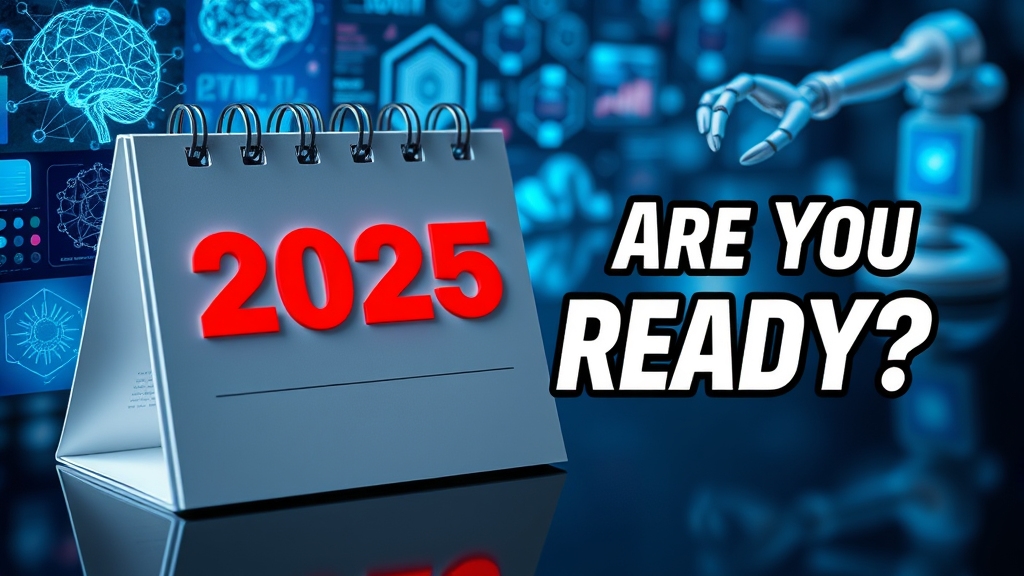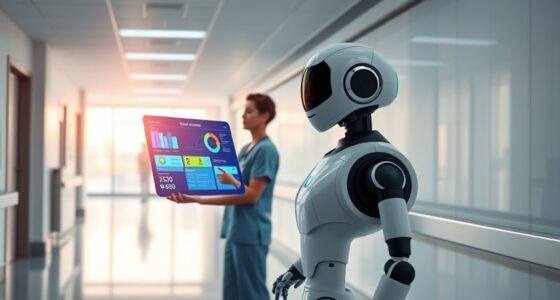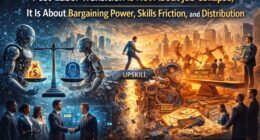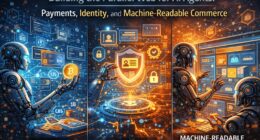What if I told you that everything you’ve learned about success in the digital age is about to become obsolete? The skills that command premium salaries today—coding, data analysis, specialized knowledge—are rapidly becoming automated by AI agents, creating a fundamental shift in what’s valuable.

II’ve witnessed this transformation firsthand. As we enter what I call ‘The Age of the Agent Orchestrator,’ technical expertise is becoming abundant—while the ability to direct AI agents effectively grows scarce. This digital earthquake is reshaping our economic landscape. Mastering Excel replaced manual calculations; similarly, orchestrating AI will replace manual task execution. Those who adapt quickly will gain unprecedented leverage.
The Great Skill Inversion
Think about the skills you’ve spent years developing. The specialized knowledge that gives you an edge in your career. Now imagine those skills becoming virtually worthless overnight. Not because they’re no longer needed, but because they’ve been automated by AI. This isn’t some distant hypothetical—it’s already happening, and faster than most of us realize.

Throughout human history, technological shifts have continuously inverted what skills society values. Before the industrial revolution, physical strength determined your worth in many labor markets. A strong farmer could produce more food, a strong blacksmith could forge more tools. The industrial revolution then shifted value toward those who could operate and maintain complex machinery. Physical strength became less important than technical knowledge and precision.
The introduction of computers created another massive skill inversion. Suddenly, the ability to perform complex calculations mentally became less important than understanding how to program a machine to do those calculations automatically. People who had spent decades mastering mental math found their skills devalued almost overnight, while those who learned programming languages gained tremendous leverage.
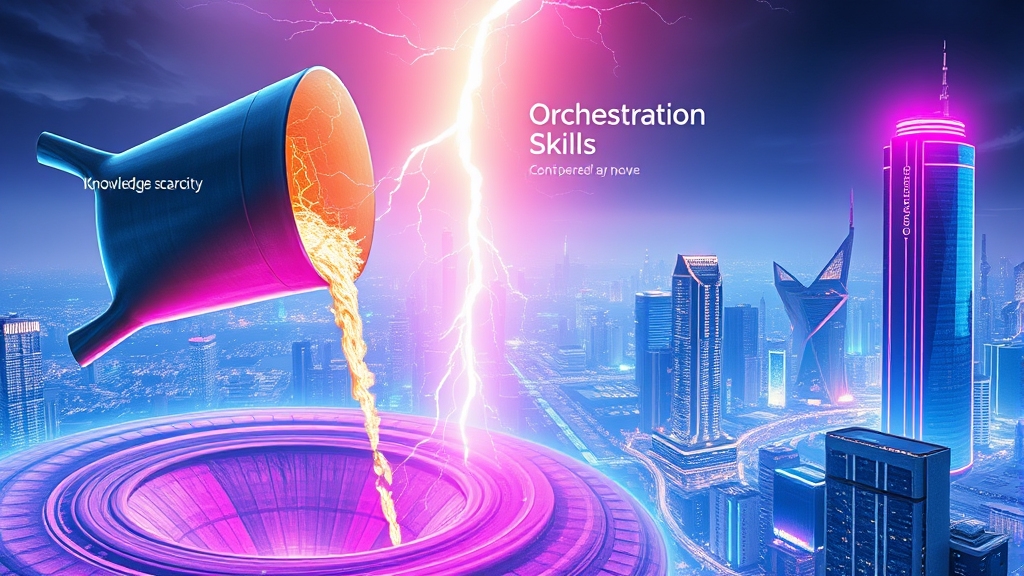
Consider the pocket calculator in the 1970s. Being able to multiply large numbers in your head quickly transformed from a practical advantage to merely a party trick. The calculator fundamentally changed what mathematical skills were valuable. Understanding concepts and knowing what calculations to perform became more important than the mechanical execution of calculations themselves.
Similarly, the internet transformed how we value information retrieval. Before search engines, knowing facts—dates, formulas, historical events—represented significant intellectual capital. Today, that advantage has largely disappeared as information became instantly accessible. The valuable skill shifted from memorization to knowing what to search for and how to evaluate the information you find.

Each wave of technology follows this pattern—eliminating old scarcities while creating new ones. When personal computers arrived, software development became the scarce skill commanding premium compensation. When Excel appeared, those who mastered it gained the ability to model businesses in ways that paper-and-calculator users simply couldn’t match. As Excel skills became common, the scarcity moved to more advanced data analysis tools like SQL, R, and Python.
What makes the current moment unique is the unprecedented speed and scope of this skill inversion. AI is transforming almost all domains of knowledge work simultaneously. At Anthropic, a company developing frontier AI systems, researchers have observed their own productivity tools making their previous workflows obsolete within months rather than years. GPT-4 can write code that passes technical interviews, generate legal briefs indistinguishable from human-written ones, and create marketing content matching what professionals produce.
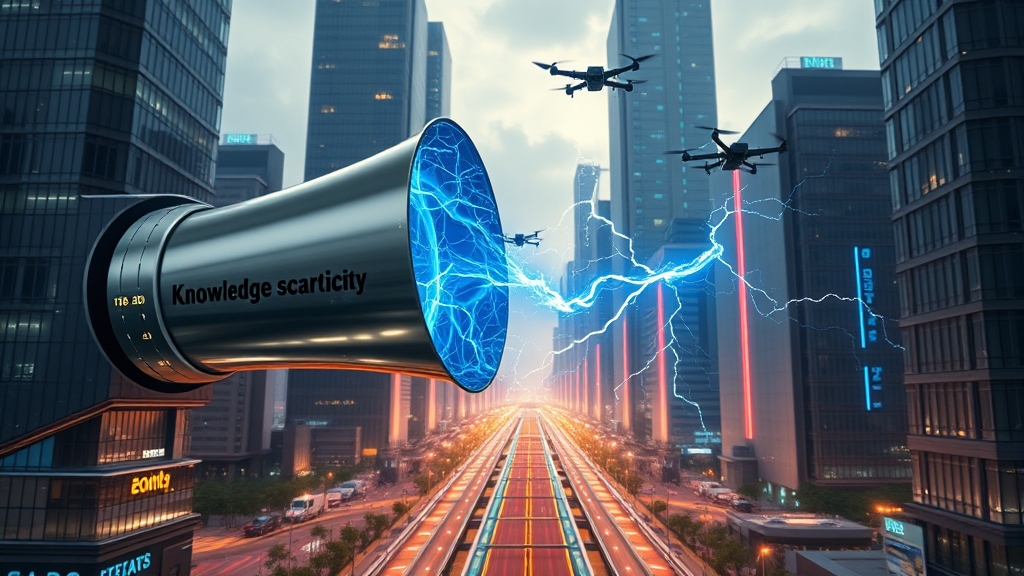
The data tells a compelling story: in development and testing tasks, AI shows a 50-70% reduction in completion time compared to skilled human professionals. In content creation, large language models generate material in minutes that would take human writers hours or days. In data analysis, AI systems identify patterns from complex datasets faster than teams of human analysts.
This transformation resembles climbing a ladder where the lower rungs keep disappearing. Just as you master a skill, AI capabilities rise to meet or exceed that level, forcing you to climb higher or fall. A software developer at a major tech company recently shared how their team’s productivity metrics initially soared with AI assistance, only to become the new baseline expectation within a quarter.

What we’re witnessing is a fundamental transformation in how knowledge work functions. The pattern we’ve seen repeatedly throughout history is happening again, but at unprecedented scale and speed. Just as calculators made mental arithmetic less valuable and search engines diminished the value of memorization, AI is making execution of many professional tasks less valuable.
This creates a profound shift in what skills will command a premium in the coming years. The skills that currently define professional identity and compensation structures—writing code, drafting documents, analyzing data, creating designs—are rapidly becoming commoditized by AI. Meanwhile, new skills are becoming scarce and valuable.
For a software developer, value shifts from writing code to knowing what code needs to be written, verifying its correctness, and integrating it with broader systems. For lawyers, from drafting documents to developing legal strategies. For marketers, from creating content to determining what content to create. For designers, from execution to creative direction and evaluation.

This represents both a threat and an opportunity. Those who continue to define their value by their ability to execute tasks that AI can now perform will face diminishing returns on their expertise. Those who adapt by developing complementary skills will thrive.
The question isn’t whether AI will replace human workers entirely—it won’t. The question is how it changes the nature of human work. Companies that adapt their workflows to leverage AI effectively will gain enormous advantages over those that don’t. Markets will reorganize around new scarcities, creating opportunities for those who recognize the pattern early.
Traditional execution skills are rapidly becoming abundant as AI makes them accessible to anyone. What’s becoming scarce? The ability to define problems clearly, design workflows that leverage AI appropriately, determine when human judgment is needed, and allocate resources efficiently.
In the coming sections, we’ll explore this transformation in detail, examining the rise of what I call the “Agent Orchestrator”—the role that will dominate the economy of 2025 and beyond. We’ll look at the specific skills these orchestrators need, the resources they’ll control, and how you can position yourself to thrive in this rapidly approaching future.
Top picks for "agent orchestrator rule"
Open Amazon search results for this keyword.
As an affiliate, we earn on qualifying purchases.
From Doers to Orchestrators
Imagine waking up tomorrow to discover that the professional skills you’ve spent years perfecting have suddenly dropped in value by 90%. The specialized knowledge that made you valuable at work—whether that’s writing code, creating marketing content, or analyzing legal documents—has been automated overnight. This isn’t science fiction; it’s the reality we’re rapidly moving toward as AI agents master execution knowledge across virtually every professional domain.

I want to introduce a critical distinction that will define career success in the coming years: execution knowledge versus orchestration knowledge. Execution knowledge is knowing how to perform specific tasks—the syntax of a programming language, the principles of effective copywriting, or the technical aspects of financial analysis. This has traditionally been what we value in professionals. We hire developers who can write code, lawyers who can draft contracts, and designers who can create compelling visuals. Orchestration knowledge is about knowing how to direct, combine, and optimize resources to achieve larger goals. It’s about creating the systems and workflows that get the work done most effectively.
Think about a film director. They don’t personally operate the camera, act all the roles, create the special effects, or compose the music. Instead, they orchestrate these elements, making decisions about how they should come together to create a cohesive final product. Their value comes from their vision and ability to coordinate diverse elements into something greater than the sum of its parts.

The difference is like a musician playing a single instrument versus a conductor leading an entire orchestra. The musician might master their instrument through years of practice, but the conductor creates harmony by understanding how all instruments work together, when each should enter, and how to balance the overall sound.
What’s happening now is that AI agents are rapidly mastering execution knowledge across a stunning range of domains. These systems can now generate and debug code, produce various content formats, and create visual elements that previously required significant human expertise. Tasks that used to require days of human effort are now completed in minutes by AI systems—and the capabilities are improving at an exponential rate.
The METR curve helps us understand this acceleration. METR stands for “Model Execution Time Reduction,” and it measures AI performance based on the length of tasks AI agents can complete. Early AI models could handle tasks that took seconds or minutes for humans to complete. Current models can handle tasks that would take humans hours. Within just a few years, we’ll see AI agents that can independently complete tasks that currently take humans days or even weeks.

This is happening right now. Software development tasks that would have taken a skilled developer a full day can now be accomplished in 30 minutes with AI assistance. Legal document review that would have occupied a lawyer for hours can now be done in minutes. Marketing content that would have required days of brainstorming, writing, and editing can be generated and refined in a fraction of that time.
The implications are profound. The detailed execution knowledge that professionals have spent years acquiring is rapidly becoming less valuable as AI can apply this knowledge more quickly and consistently than humans. This doesn’t mean human expertise disappears completely. But it does mean that the nature of that expertise is transforming fundamentally.
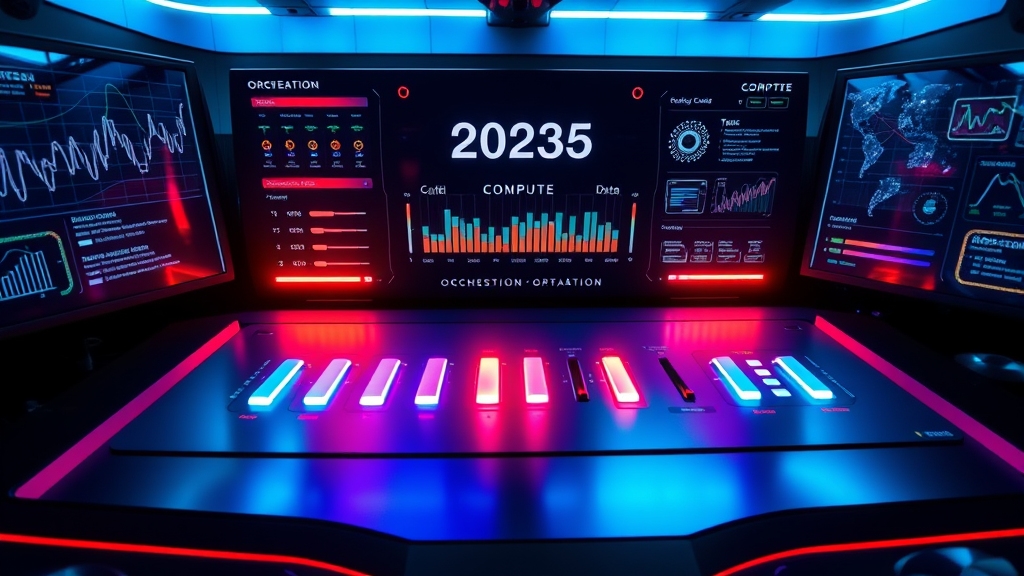
I recently observed a team of developers working on a project with and without AI assistance. Without AI, they spent hours debugging code, searching documentation, and implementing features. With AI, they completed the same tasks in less than half the time. But what was most interesting was how their work changed. They spent significantly less time typing code and more time thinking about architecture, user experience, and how different components would interact. Their value shifted from writing code to deciding what code should be written and evaluating its quality.
This pattern repeats across industries. Marketers focus more on defining brand voice and campaign strategy. Lawyers develop legal strategies and review AI-generated work for nuance. Designers develop creative direction and evaluate aesthetic choices.
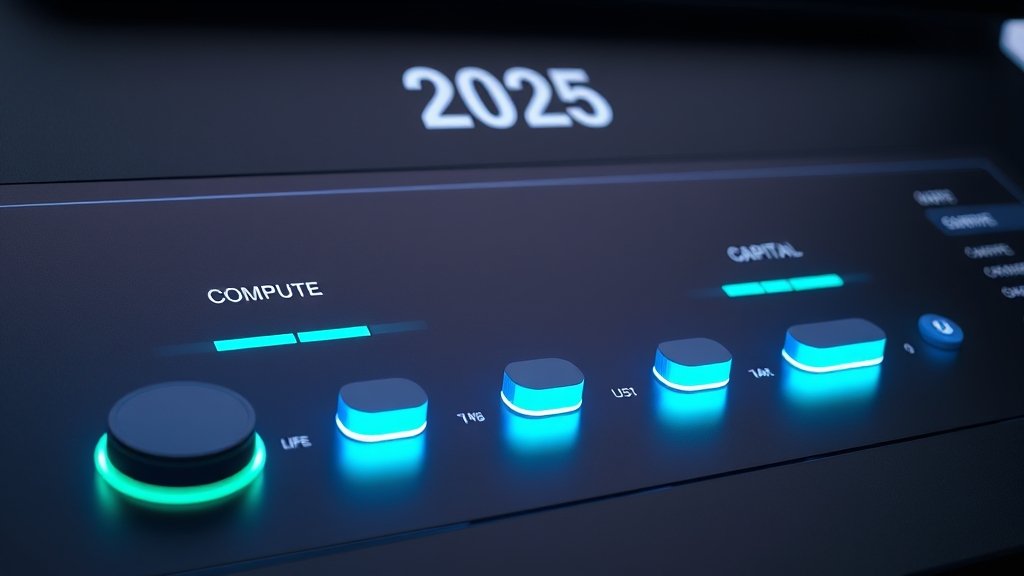
Take Sarah, a marketing director I worked with. Previously, she spent 70% of her time writing copy and creating content. Now, AI handles those tasks while she focuses on strategic planning, brand positioning, and coordinating her team’s efforts with AI tools. Her value—and salary—increased when she became an orchestrator rather than an executor.
What’s replacing execution knowledge as the premium skill? The ability to effectively orchestrate AI tools and human expertise. This includes designing workflows that leverage AI appropriately, determining when human judgment is needed, and optimizing resource allocation across complex projects. The most valuable professionals are those who can coordinate complex systems of AI agents and human experts to achieve goals most efficiently.
Consider a complex marketing campaign. Previously, value came from being able to write compelling copy, design attractive visuals, and analyze performance data. Now, AI can generate dozens of copy variations, create multiple design concepts, and provide detailed analytics. The premium skill becomes knowing what to ask the AI to create, how to evaluate its output, when to bring in human creativity, and how to integrate these elements into a cohesive campaign.
This shift fundamentally changes how we should think about professional development. Learning technical details is becoming less valuable than learning how to coordinate and direct AI systems. The skills that will command premium compensation are about knowing which tasks need to be done, in what order, by which combination of AI and human resources.
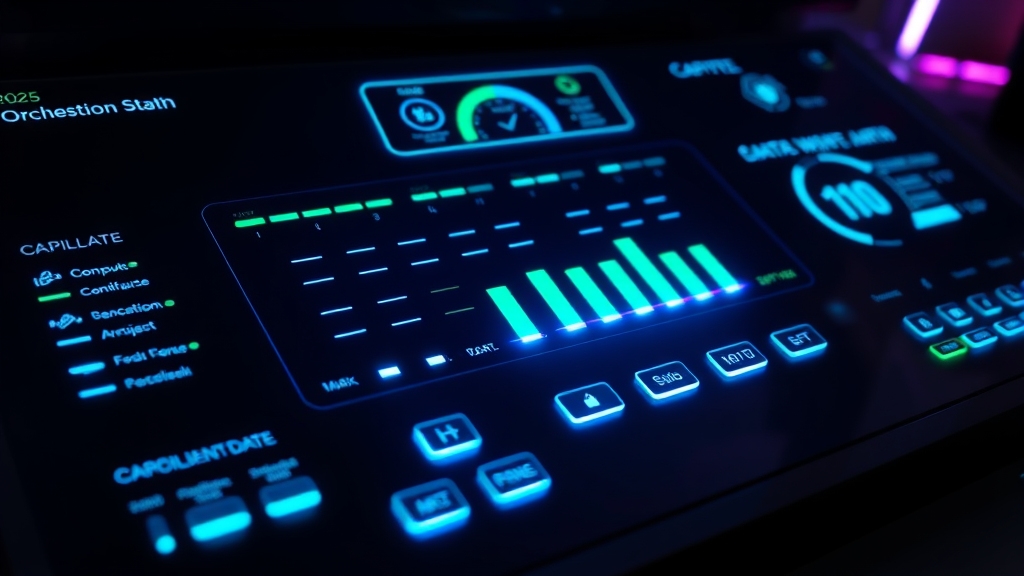
The value of a professional is increasingly found in their ability to define problems clearly, design effective workflows, evaluate AI outputs critically, and integrate various components into a cohesive whole. These orchestration skills apply across domains, from software development to marketing to legal work to financial analysis.
This represents the most significant shift in professional value creation since the digital revolution. Just as computers made certain clerical skills less valuable while creating demand for new digital capabilities, AI is making execution skills less valuable while creating demand for orchestration capabilities.
But what exactly is an ‘Agent Orchestrator’ and why will they become the power players of tomorrow’s economy? To understand this, we need to examine the specific responsibilities and skills of this emerging role, and why it represents a fundamentally new approach to knowledge work in an AI-powered world.
The Rise of the Agent Orchestrator
Who will command the highest salaries in 2025? Not coders, not designers, not even AI engineers – but those who master a completely new profession that’s emerging at the intersection of technology and business strategy. I’m talking about the Agent Orchestrator, a role that largely doesn’t exist yet but will soon become the most valuable position in countless organizations.
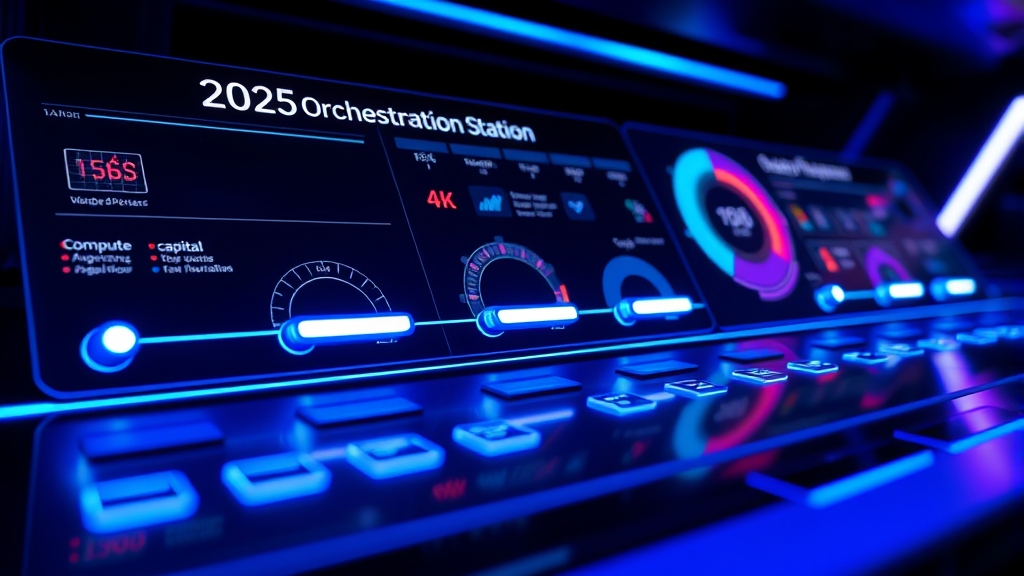
Think of an Agent Orchestrator as the conductor of a digital orchestra. While individual AI models and human experts are the musicians playing specific instruments, the conductor ensures they work together harmoniously to create something greater than the sum of their parts. This role represents an entirely new function created by the unique challenges and opportunities of AI agents. An Agent Orchestrator designs, optimizes, and manages complex systems of AI agents and human experts to accomplish business objectives. They determine which tasks should be automated, which require human judgment, and how to allocate limited resources like compute power, human attention, and capital to maximize results.
As traditional knowledge work becomes increasingly automated, the premium shifts to those who can direct and optimize that execution most effectively. What makes the Agent Orchestrator role distinctive is how it combines elements that have traditionally been separate domains. It takes aspects of product management (defining requirements and success metrics), system design (creating efficient workflows and feedback loops), and resource optimization (allocating compute and human resources) – integrating them into a cohesive function that hasn’t existed before.
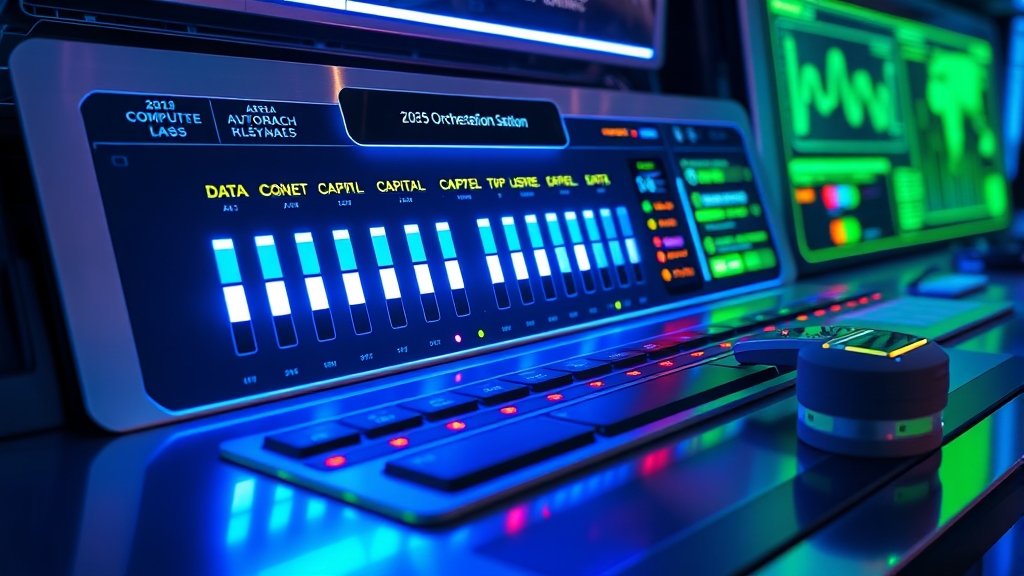
Their responsibilities extend far beyond what we currently associate with AI specialists. They design entire workflows that might include multiple AI agents working in sequence, determine checkpoints where human judgment is required, and continuously optimize the allocation of resources across the system. They’re creating a new kind of organizational operating system where humans and AI collaborate efficiently.
Consider what this looks like in practice. An Agent Orchestrator might design a content production workflow that uses different AI models for research, writing, editing, and visual creation – with specific checkpoints where human experts review and refine the output. They determine when to use more compute-intensive models versus lighter ones, when overnight processing makes sense to save costs, and how to structure the feedback loop so the system improves over time. They’re creating the system that creates the content.
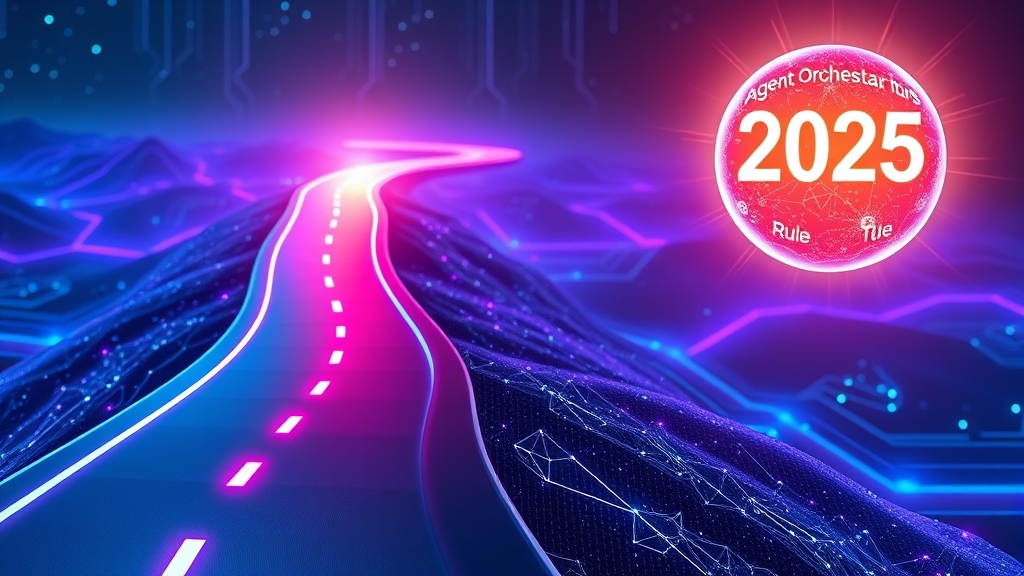
We’re already seeing early examples of proto-Agent Orchestrators creating outsized value. These professionals excel at optimizing cloud spend, scheduling computational jobs efficiently, and focusing on capital efficiency in AI operations. Companies with these people on staff can accomplish the same work as their competitors but at a fraction of the cost and time. The best companies already do some of this orchestration well, but most organizations are extremely wasteful with both human and machine time – an inefficiency that will become increasingly costly as AI capabilities expand.
What distinguishes this role from adjacent disciplines like prompt engineering or AI development is comprehensive end-to-end responsibility. While prompt engineers focus on crafting effective instructions for AI models, and AI developers build the underlying systems, Agent Orchestrators focus on the entire workflow and resource allocation strategy. As one expert described it, this is product management for agents – thinking about edge cases, deciding when to let the agent run versus when to stop and ask a human, noticing when the agent is optimizing the wrong thing because you gave it the wrong reward.
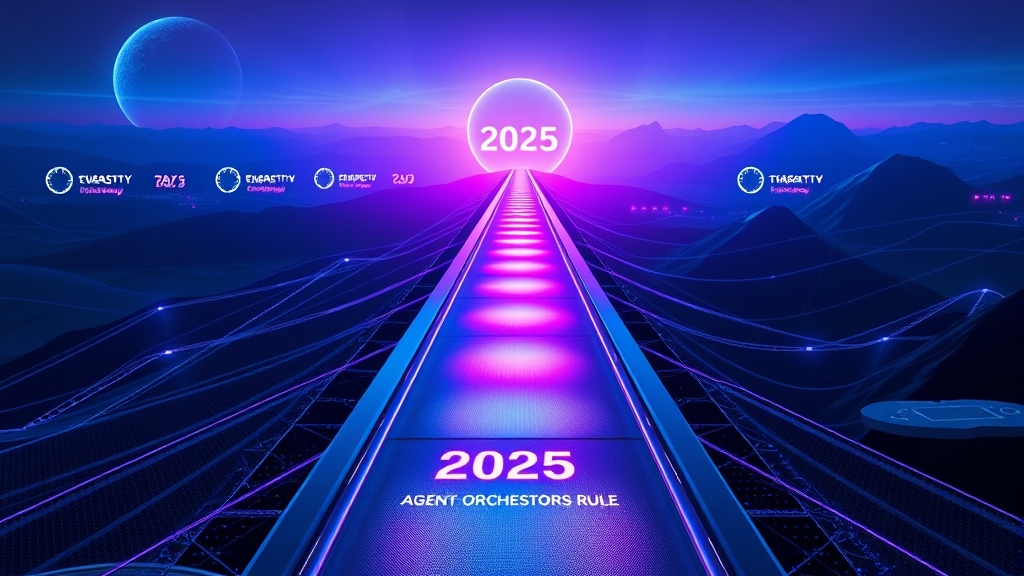
The Agent Orchestrator manages the interconnected system of multiple agents working together with humans. They make strategic decisions about resource allocation that directly impact the organization’s bottom line. Should you spend more on compute for this task, or would human review be more cost-effective? How can you queue up intensive processing tasks for overnight when energy costs are lower? These decisions require a unique blend of technical understanding, business acumen, and systems thinking.
Effective Agent Orchestrators combine technical literacy, systems thinking, and resource optimization with domain expertise in their industry. A legal Agent Orchestrator will understand which parts of contract review require human judgment and which can be safely automated. A marketing Agent Orchestrator will know where creative direction from humans adds the most value compared to AI-generated content.
By 2025, Agent Orchestrators will dominate the compensation landscape because they’ll create exponentially more value than traditional knowledge workers. In a world where execution knowledge is widely accessible through AI, they’ll be capable of 10x or even 100x the output by designing and managing systems that multiply their impact.

The internet and software development created massive leverage for those who understood them early. A single programmer could create software used by millions. Agent Orchestrators will have similar leverage, but across virtually every knowledge domain. They’ll transform legal departments, marketing agencies, financial firms, and countless other organizations.
Organizations that recognize this shift early and invest in developing Agent Orchestration capabilities will gain tremendous competitive advantages. They’ll accomplish more work, at higher quality, with fewer resources than their competitors. Individual professionals who develop these skills will command premium compensation because their impact will be demonstrably greater than those still focused primarily on execution.
This transition is already beginning, but most organizations and professionals don’t recognize it yet. They’re still operating in a paradigm where execution knowledge is the primary source of value, not realizing how quickly AI is changing that equation. By the time this becomes obvious to everyone, those who have already positioned themselves as Agent Orchestrators will have an insurmountable lead.
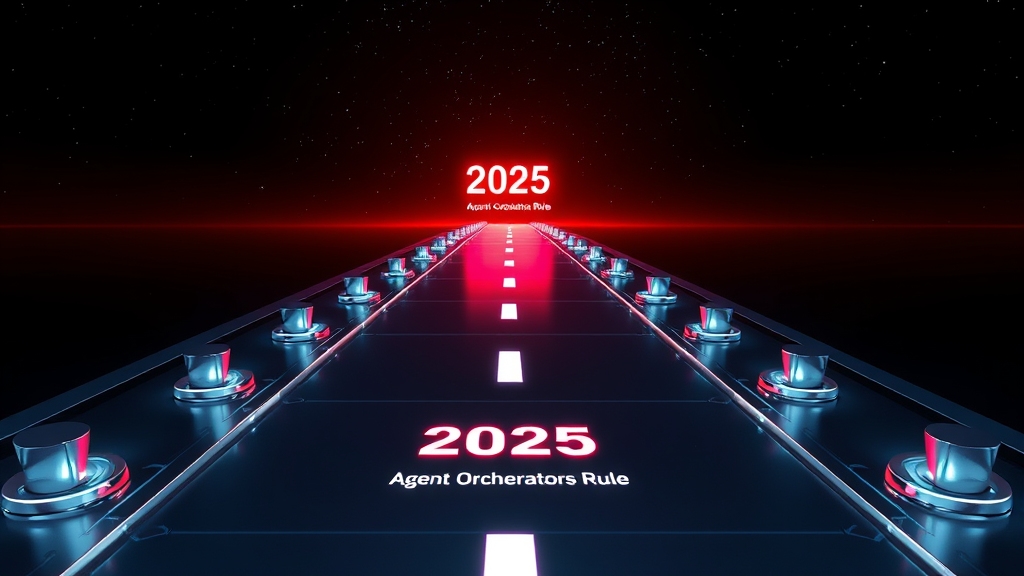
The shift toward Agent Orchestration represents the most significant transformation in knowledge work since the advent of personal computing. Just as those who mastered software development early gained tremendous advantages in the digital economy, those who master Agent Orchestration will find themselves uniquely positioned to thrive in the AI economy.
The New Scarce Resources
Throughout history, economic value has always concentrated around whatever is scarce. In agricultural societies, land was the primary scarce resource. Those who controlled fertile fields controlled wealth. During the industrial revolution, factories and machinery became the scarce assets that generated value. In the information age, specialized knowledge and skills became the bottleneck. Companies competed for talent, and professionals with rare expertise commanded premium salaries.
Now we’re entering a fundamentally different economic landscape. As AI agents become capable of performing increasingly complex tasks, the scarce resources are shifting once again. Understanding these new scarcities is essential for anyone who wants to thrive in this emerging economy. Most people are still focused on developing the skills that were valuable in the previous era, not recognizing how quickly the ground is shifting beneath them.

When AI can generate code, write marketing content, analyze data, and perform countless other knowledge tasks, what becomes truly valuable? What are the new bottlenecks that limit what organizations and individuals can accomplish? These questions reveal the playing field on which Agent Orchestrators will compete. Four critical resources are emerging as the new scarce elements in an AI-powered economy: compute power, capital, data access, and human judgment.
Compute power – the raw processing capability needed to run AI models – functions as the digital fuel of the AI economy. The computational demands of sophisticated AI models are enormous and growing rapidly. Consider a startup that developed an innovative AI product but failed to properly forecast compute costs, burning through their runway twice as fast as planned. Access to processing power is becoming a critical competitive advantage. Organizations that efficiently allocate compute resources across their AI workflows significantly outperform those that cannot.

Teams must become adept at assigning compute resources to autonomous workflows and AI agents. This involves strategically allocating processing power to maximize impact. Should you use a more powerful model for this task or will a smaller, faster one suffice? Is it worth spending extra compute on this process, or would that processing capacity create more value elsewhere? These decisions directly impact both output quality and operational costs.
Capital allocation represents another crucial resource in the AI economy. Similar to how startups manage funding, organizations need to strategically invest in AI-powered workflows. Every decision about where to deploy capital – whether in more powerful models, larger datasets, or human expertise – directly impacts organizational achievement.

The parallel between startup capital management and compute resource allocation is striking. Both require making strategic bets with limited resources and focusing investments where they’ll create the most value. A manufacturing company that intelligently allocated capital to AI process automation saw productivity increase 40% while competitors who invested haphazardly saw minimal returns. Organizations that excel at capital allocation develop significant advantages over competitors who invest less strategically.
Data access forms the third critical resource. While AI models contain impressive amounts of general knowledge, proprietary data provides significant competitive advantage. The ability to train models on organization-specific information creates capabilities that competitors cannot easily replicate. A healthcare provider that leveraged its unique patient outcome dataset to fine-tune diagnostic models achieved accuracy rates 15% higher than those using only general-purpose models.
The teams that effectively orchestrate data resources gain substantial advantages. This includes determining which agents access specific datasets, how to structure data for optimal AI utilization, and how to continuously improve data quality. As AI becomes better at extracting insights, the value of unique, high-quality data grows accordingly. Organizations with proprietary data assets find themselves with a significant competitive moat.

Human judgment emerges as the ultimate scarce resource in an AI-driven economy. As AI handles routine tasks, human expertise becomes more valuable, but in a fundamentally different way. The premium shifts from possessing task-based knowledge to knowing when and how to apply judgment within automated workflows.
Consider tax preparation. Currently, the valuable skill is knowing the tax code in detail. In an AI economy, that specific knowledge becomes less valuable as models can apply tax regulations. However, designing a workflow that produces accurate returns, flags ambiguous parts for human review, and minimizes compute costs becomes incredibly valuable. When a financial services firm implemented an AI tax system but maintained human oversight for complex cases, they caught a subtle regulatory interpretation that saved clients millions while competitors’ fully automated systems missed it.

This represents a profound shift in how we value human expertise. The most valuable professionals won’t be those who perform specific tasks better than others – they’ll be those who determine where human judgment adds the most value within an automated system.
How will these scarce resources be optimized? The answer leads us directly to the Agent Orchestrator role. As these four resources become the primary constraints on what organizations can accomplish, the ability to strategically allocate and coordinate them becomes the meta-skill that creates the most value.
The value shifts from performing knowledge work to orchestrating the systems that perform knowledge work. This is why Agent Orchestrators will command premium compensation – they directly impact how efficiently organizations utilize these scarce resources.

To use a historical parallel, when capital and factories were the scarce resources of the industrial economy, the most valued professionals were those who could effectively manage those resources. In the AI economy, Agent Orchestrators play a similar role with a new set of scarce resources.
But what specific skills allow Agent Orchestrators to effectively manage these resources? How do you develop the capacity to make strategic decisions about compute allocation, capital investment, data utilization, and human judgment deployment? These questions lead us to examine the concrete toolkit that successful Agent Orchestrators will need to master.
The Orchestrator’s Toolkit

What separates great Agent Orchestrators from the merely adequate ones? The difference lies in a specific set of skills that most educational institutions and businesses don’t even recognize yet, let alone teach. While technical knowledge remains important, the truly valuable capabilities exist at the intersection of multiple disciplines – creating a toolkit that enables some orchestrators to generate exponentially more value than others.
Effective Agent Orchestration combines system design, resource management, behavioral economics, and domain expertise into a cohesive skill set that few people naturally possess. It’s about creating systems where humans and AI work together optimally.

This skillset differs dramatically from what our education systems and businesses currently value. Most professional training develops deep expertise in specific domains – programming, law, marketing, or design. The emphasis remains on execution knowledge rather than orchestration abilities. Even technical AI education focuses on model development or prompt engineering rather than orchestration meta-skills.
Traditional organizational workflows involve handoffs between specialists with minimal optimization for interaction. Individual contributions receive rewards rather than system efficiency. This approach falters in AI-powered environments, where designing workflows that leverage both human and machine capabilities becomes paramount.

Workflow design forms the foundation of the Orchestrator’s toolkit. Like a master chef preparing ingredients before cooking, Orchestrators break complex processes into components that AI can manage efficiently, establishing appropriate checkpoints for human oversight. They excel at decomposing intricate tasks into automatable pieces while identifying critical junctures where human judgment adds maximum value.
These workflows must include feedback loops that continuously refine agent performance through:
- Monitoring outputs to identify improvement areas
- Adjusting reward functions to optimize behavior
- Ensuring systems learn from mistakes
The goal: autonomous workflows producing correct results efficiently while flagging situations requiring human expertise.
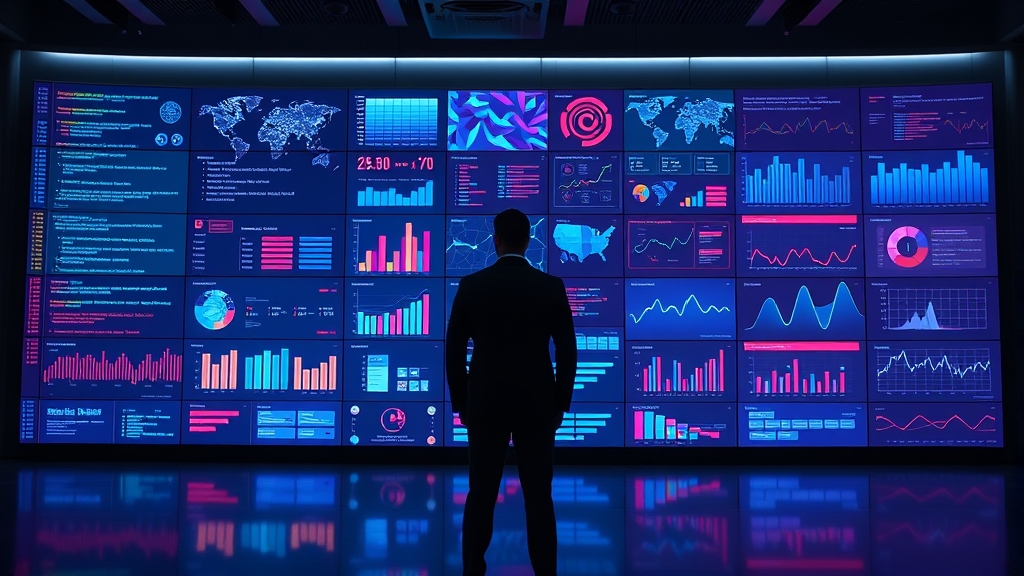
Many companies implement AI ineffectively, creating more work by having humans check every AI output rather than applying human judgment strategically. As one expert noted, “older workflows are often complex, inefficient, and require humans to check AI, which requires more humans.”
Resource optimization represents another critical component. Orchestrators make strategic decisions about allocating scarce resources – compute power, capital, and human attention. They balance speed, cost, and quality across complex AI workflows.
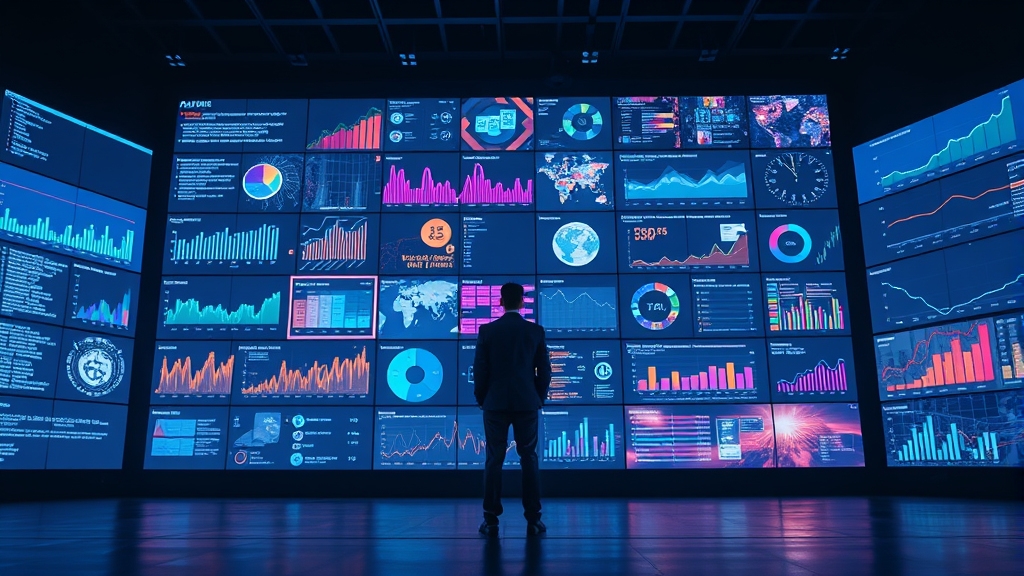
For example, an effective Orchestrator might:
- Deploy powerful models for creative tasks requiring nuance
- Use lightweight models for routine classification tasks
- Schedule batch processing during off-peak hours to reduce costs
- Reserve human review for high-risk decisions or edge cases
These decisions directly impact both output quality and operational costs.

Perhaps the most nuanced skill involves determining when human judgment is required versus when AI can operate autonomously. This requires understanding AI capabilities and limitations, combined with domain expertise to recognize where human insight adds value.
Key scenarios requiring human judgment include:
- Edge cases outside typical parameters
- High-level strategic decisions
- Unusual situations requiring specialized expertise
By identifying these scenarios proactively, Orchestrators design workflows that route appropriate decisions to humans while allowing AI to handle routine tasks independently.
Instrumentation and measurement complete the Orchestrator’s toolkit. Effective orchestration requires continuous monitoring, testing, and refinement. This means building robust systems to track performance across multiple dimensions and using that data to drive improvements.

Successful Orchestrators establish experimentation cultures, comparing different agent configurations through A/B testing, monitoring outputs to identify improvement areas, and iterating designs to optimize results. They treat AI orchestration as a continuous process, seeking small improvements that compound over time.
This approach creates significant competitive advantages. Organizations systematically testing, measuring, and refining their AI orchestration dramatically outperform those implementing AI statically.
Building an Orchestrator’s toolkit resembles assembling a Swiss Army knife – each tool serves a specific purpose, but the real value comes from having all tools available in a compact, integrated package. Just as a Swiss Army knife owner can address diverse challenges with a single tool, skilled Orchestrators can navigate complex AI implementation challenges by drawing on their multidisciplinary toolkit.

What makes these skills particularly valuable is their rarity. Few professionals have developed this multidisciplinary toolkit, as it requires combining capabilities from separate domains. Technical experts often lack business acumen and domain knowledge. Domain experts frequently lack technical understanding of AI capabilities. Few in either category have developed the systems thinking required for effective orchestration.
This skill gap creates tremendous opportunities for early adopters. Just as software development became premium during personal computing’s rise, and data science commanded high compensation during the big data era, Agent Orchestration will become the premium capability in the AI economy.

Traditional educational pathways poorly suit developing this multidisciplinary toolkit. Universities organize around distinct disciplines rather than integration. Professional certifications focus on specific technical skills rather than orchestration capabilities.
Consequently, skill development will happen through experimentation, self-directed learning, and on-the-job application rather than formal education. Those recognizing these skills’ value early and deliberately developing them will gain significant advantages. Organizations identifying and nurturing orchestration talent will similarly outperform peers failing to recognize the value shift.

But how quickly is this transition happening? Are we talking about skills that will matter in a decade, or changes already underway? The timeline for this transformation is accelerating faster than most realize, with some industries already feeling the impact while others will transform in the coming months and years.
The Acceleration Timeline

When will the Agent Orchestrator shift actually happen? Most experts I’ve talked to give the standard “5-10 years” timeline—the safe prediction for any technological change. But that timeline is wrong. The data shows this transformation isn’t coming in some distant future—it’s happening right now, with full industry transformations coming within months and years, not decades.
Humans consistently underestimate exponential growth because we naturally think linearly. Moore’s Law demonstrated how processing power doubled approximately every two years, creating computing capabilities that seemed impossible decades earlier. AI capabilities follow this pattern at an even more accelerated pace, which explains why predictions about AI timelines have been consistently wrong. We project current capabilities forward in a straight line and conclude we have plenty of time, but AI advances exponentially, with each improvement enabling faster subsequent breakthroughs.
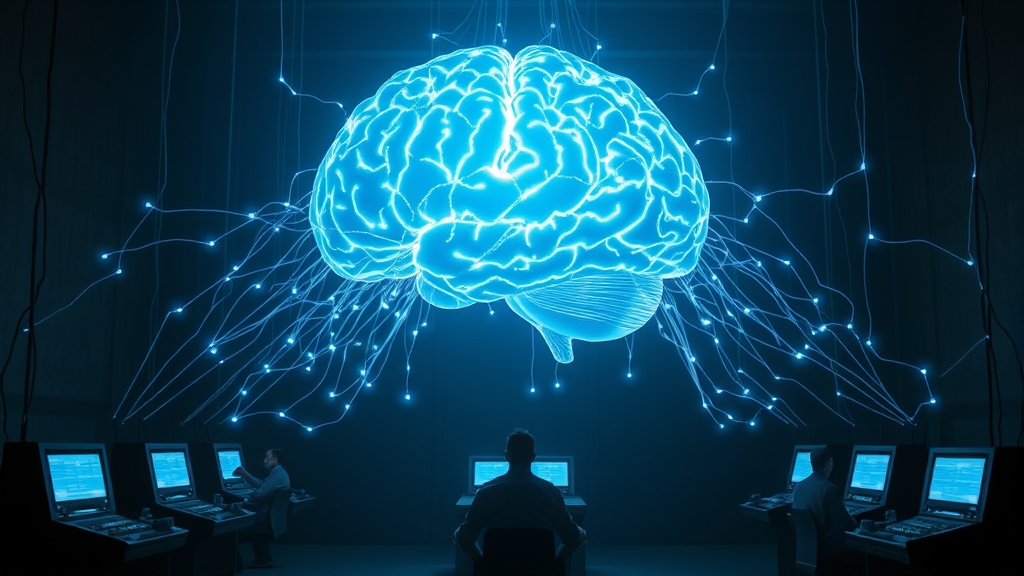
The METR curve (Model Execution Time Reduction) measures AI performance based on the length of tasks AI agents can complete. Early models handled tasks taking humans seconds or minutes. Current models manage tasks requiring hours. The curve bends upward at an increasing rate, suggesting we’ll soon see AI systems independently completing tasks that would take humans days or weeks. This acceleration is already visible – tasks that required days from skilled professionals two years ago now take hours with AI assistance, and by next year, many will be completed in minutes.
Different industries will transform at varying speeds, following a clear pattern. Industries with defined workflows and digitized information are transforming first—software development, content creation, basic legal work, financial analysis, and customer service. In software development, AI agents already write, test, and debug code with minimal human oversight, delivering 2-5x productivity improvements.
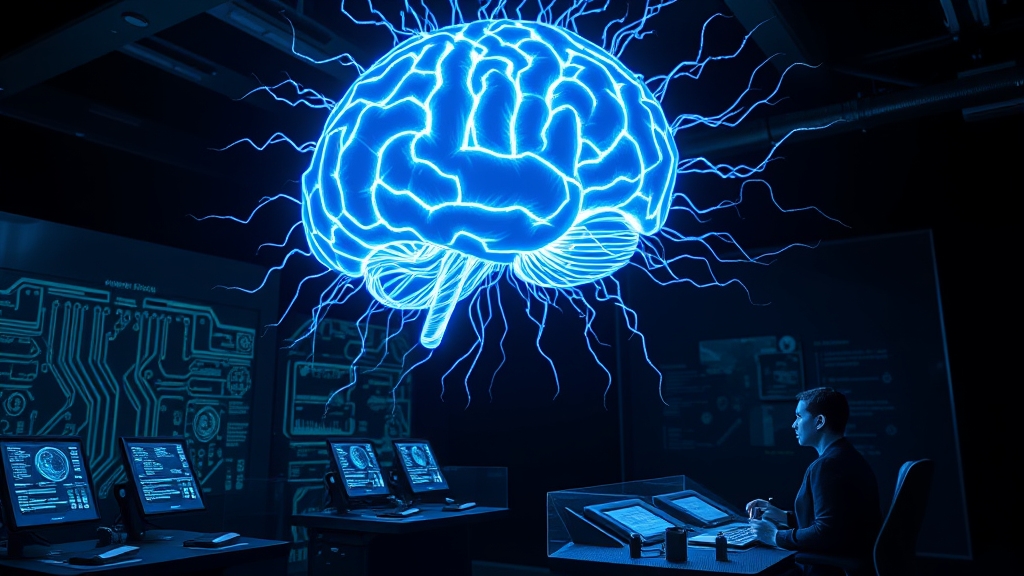
The next wave will reach industries with less standardized but still information-based workflows—complex legal work, marketing strategy, education, and healthcare analysis. Though these fields require nuanced judgment, AI systems are rapidly improving at handling complexity. This transformation isn’t years away—it’s happening within 1-3 years, with early adopters already gaining advantages.
Even traditionally resistant industries like construction, manufacturing, and personalized healthcare will transform faster than expected as AI agents better interface with the physical world through robotics and IoT devices.

How quickly might these changes unfold once certain thresholds are crossed? Previous technological transitions provide valuable lessons. The internet transformed business rapidly once adoption reached critical mass. In 1995, websites were optional for most businesses. By 2000, they were essential. By 2005, entire business models had been upended, with companies like Amazon, eBay, and Google establishing dominant positions.
The smartphone created a similar rapid transition. In 2007, when the iPhone launched, most businesses had no mobile strategy. By 2012—just five years later—mobile had become central to consumer behavior. Companies that adapted quickly (Instagram, Uber, Airbnb) created massive value, while slower movers lost market share.
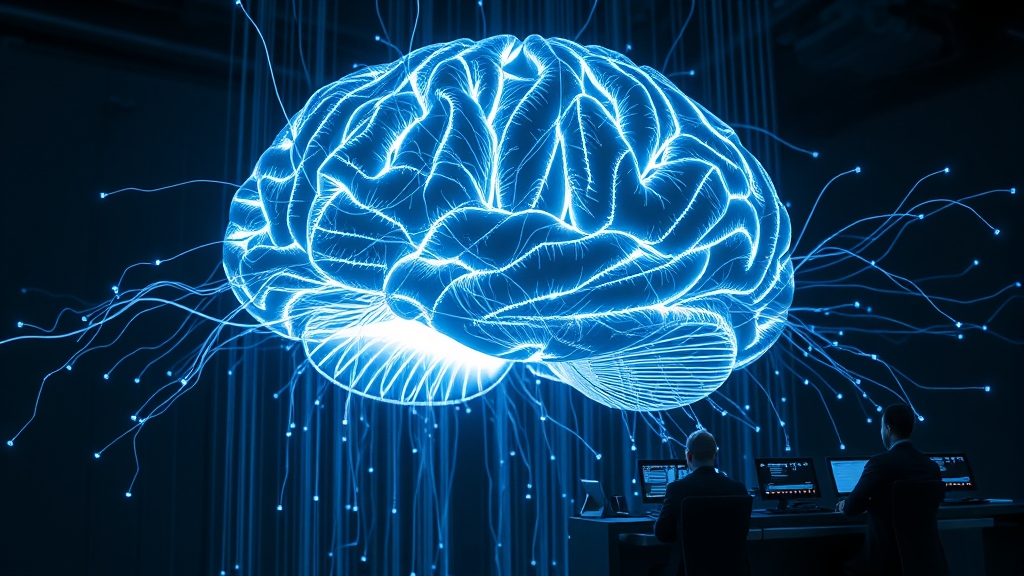
AI agent adoption will follow a similar pattern but compressed into an even shorter timeframe. We’re currently in the early adoption phase, with forward-thinking organizations experimenting with agent orchestration. As capabilities improve and success stories spread, adoption will accelerate rapidly. By 2025, organizations without effective agent orchestration strategies will face substantial competitive disadvantages.

This compressed timeline creates enormous opportunities for early adopters. Companies embracing agent-based testing and AI-driven workflows now will develop compounding advantages. Each experiment provides data to improve systems, each workflow optimization reduces costs and increases quality, and each implementation builds institutional knowledge about effective orchestration.
Organizations building robust internal tooling for agent management will operate at fundamentally different efficiency levels. A company where every team member can easily deploy, monitor, and optimize AI agents will significantly outperform competitors where AI remains a specialized function. The gap between leaders and followers will grow exponentially.
What does this mean for your career planning? The window for developing orchestration skills is now, not years from now. The most valuable professionals in 2025 will be those who have been actively developing orchestration capabilities for years. When should you begin that journey? Immediately.

According to METR curve projections, AI capabilities are advancing fast enough to transform industries within 1-3 years. The specific timeline varies by industry, but the direction and acceleration are clear. How can you prepare for changes already underway rather than a distant future?
For individuals, this means centering career development around orchestration. Which aspects of your role could be automated within the next year? How might you shift from execution to orchestration in your current position? What experiments could you run today to build orchestration experience?
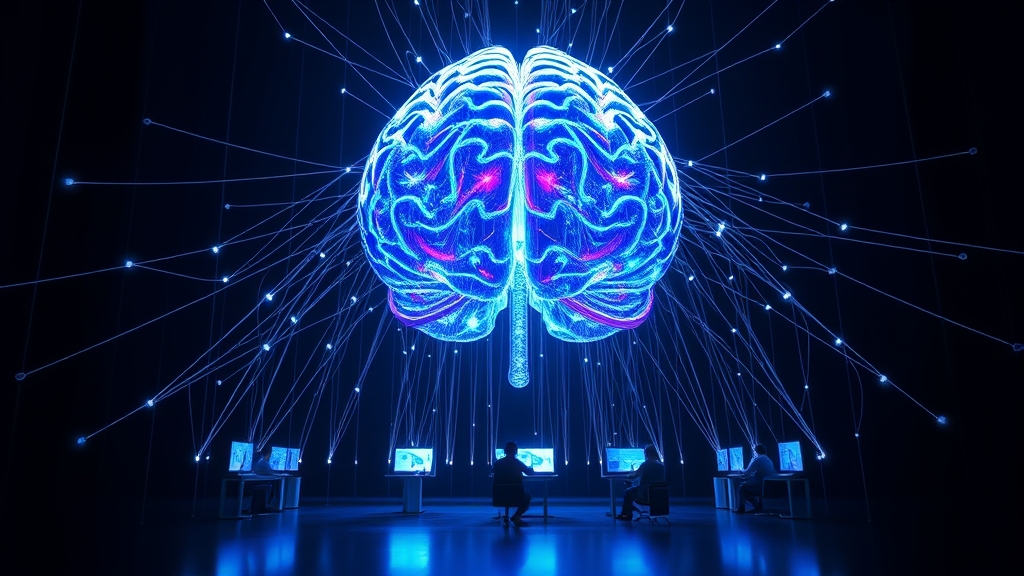
For organizations, it means reconsidering strategic planning horizons. Traditional 5-year plans may become obsolete within months due to AI advancements. How can companies develop adaptive strategies that evolve as capabilities change?
The most dangerous approach is complacency—assuming today’s AI limitations will persist for years. Once capabilities cross certain thresholds, transformation happens much more quickly than anticipated. By the time the shift becomes obvious to everyone, early adopters will have established insurmountable advantages.
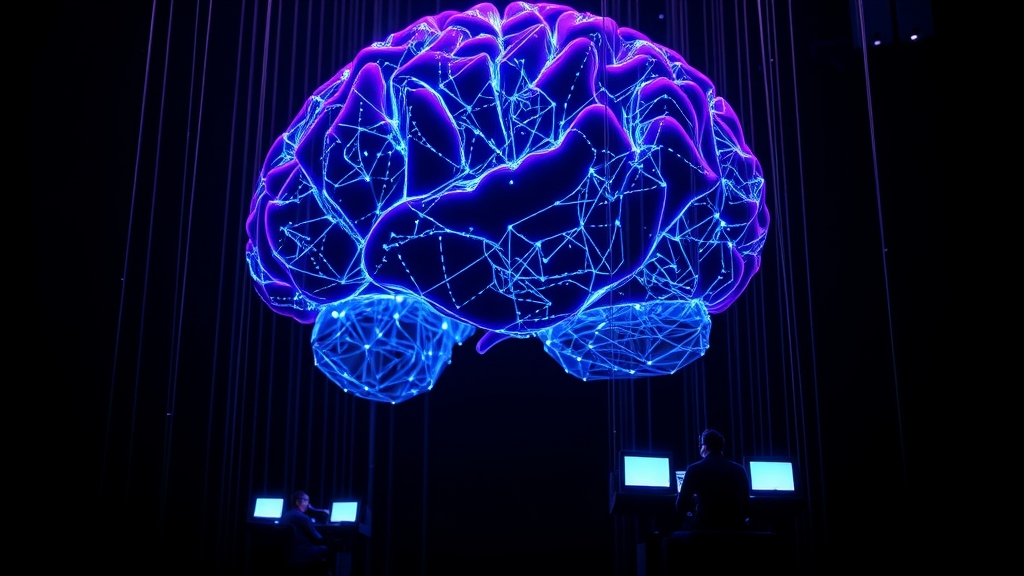
But what happens to human workers in this rapidly approaching future? Does the rise of Agent Orchestrators mean widespread job displacement? Or does it create new opportunities for human contribution? The relationship between humans and AI in this new paradigm is more complex—and more promising—than many assume.
The Human Element

The fear of technological unemployment has been with us since the Luddites smashed looms in the early 1800s. With each new wave of automation, from assembly lines to computers, people have worried that machines would make human workers obsolete. Now, as AI capabilities expand rapidly, that concern has reached new heights. Many people worry that we’re heading toward a future where most humans simply won’t have economic value—where AI agents can do everything better, faster, and cheaper than their human counterparts.
This anxiety is understandable but misses a crucial aspect of how technology transforms work. The relationship between AI and human workers is complementary, where each enhances the other’s capabilities. What we’re witnessing is a fundamental transformation in how human skills create value.

As AI becomes more capable, certain human skills become more valuable. The skills that AI can replicate easily become commoditized, while those that remain uniquely human become scarce and therefore more valuable. We’re seeing a significant shift in what human contributions matter most.
Humans bring three distinctive capacities to an AI-driven economy: judgment in ambiguous situations, creative vision, and ethical reasoning. Consider Sarah, a senior legal counsel who recently integrated AI tools into her practice. While the AI efficiently handles document review and precedent research, Sarah found herself spending more time on the nuanced aspects of cases that fall between clear precedents. Her judgment in these gray areas—drawing on diverse experiences and applying contextual reasoning—became her most valuable contribution.
Judgment in ambiguity involves making decisions when information is incomplete or contradictory. When a legal case falls into a gray area, when a customer request doesn’t fit standard categories, or when a decision involves balancing competing values, human judgment remains essential. Even as AI handles more execution tasks, experts provide judgment, set high-level strategy, and handle the unusual cases.
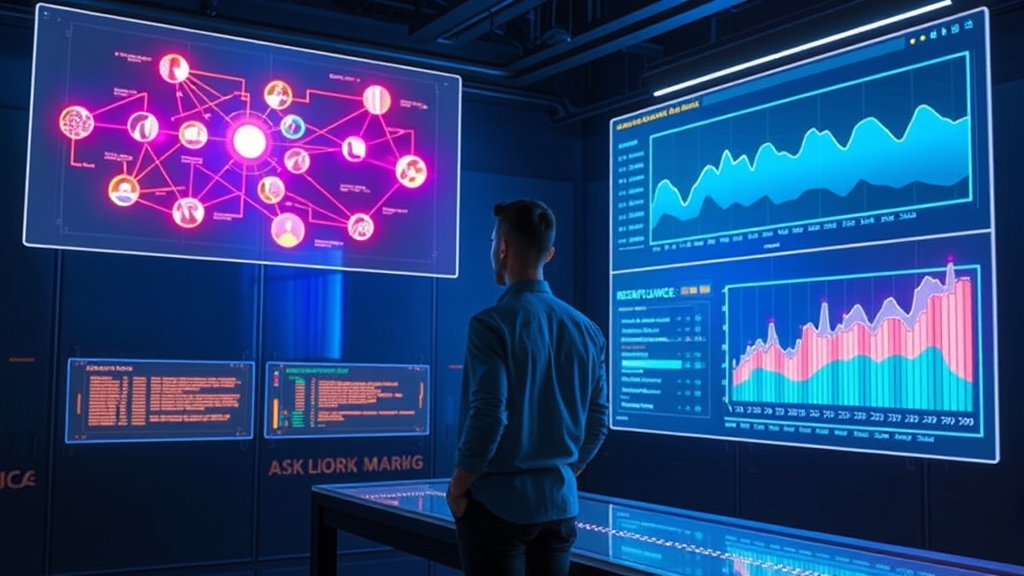
Creative vision—imagining things that don’t yet exist—represents another human strength. While AI can generate variations based on existing patterns, true innovation requires conceptual leaps. The ability to envision radical alternatives and synthesize disparate concepts into something new remains primarily human. This is why creative direction will likely remain a human domain even as execution becomes increasingly automated.
Ethical reasoning forms the third pillar of human contribution. Making decisions that balance competing values requires reasoning that goes beyond optimization. Humans understand ethical principles as complex social contracts with nuanced applications. When decisions have moral dimensions—in healthcare, content moderation, or resource allocation—human ethical reasoning remains essential.

Human expertise is transforming from execution to oversight, becoming less frequent in the workflow but more critical when it occurs. In traditional workflows, humans perform most tasks directly. In AI-powered workflows, humans provide oversight, making key decisions at critical junctures while AI handles routine execution.
Take Marcus, a radiologist who now works with AI diagnostic tools. Rather than reviewing every scan in detail, he focuses on the complex cases flagged by the system and provides final judgment on ambiguous findings. His interventions are less frequent but more consequential—creating value precisely where AI reaches its limits.
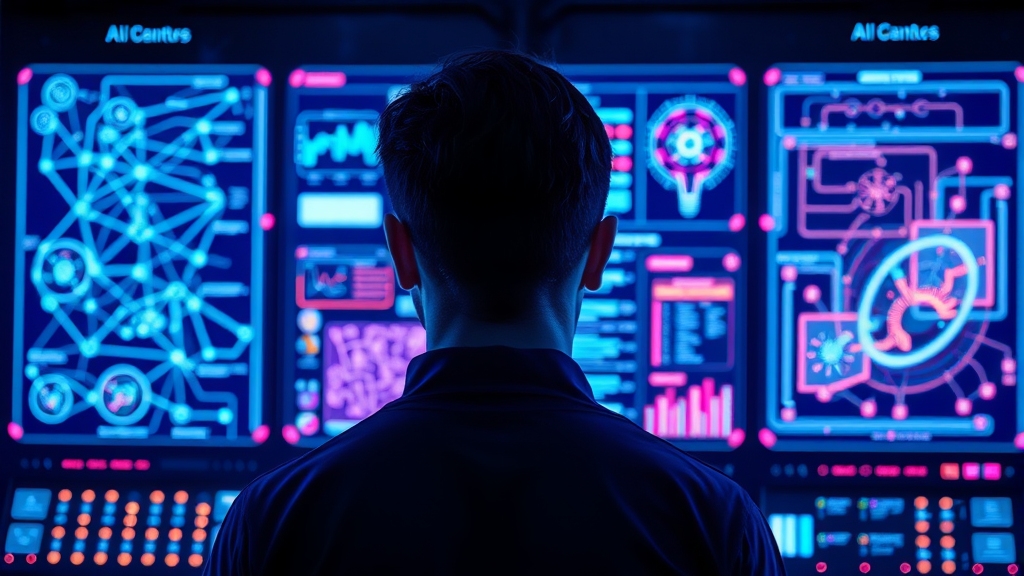
The leverage point moves from “knowing the details” to “knowing how to set up autonomous workflows and when to involve human oversight.” Domain knowledge remains essential, but its application changes from manual execution to strategic direction and critical evaluation.
Agent Orchestrators must become skilled at determining the optimal points for human intervention in automated workflows. This involves sophisticated judgment about when AI can operate autonomously versus when human input is required. Several key scenarios typically demand human involvement: edge cases, ambiguous situations where judgment balances competing considerations, and high-stakes decisions with significant consequences.

Effective orchestration optimizes the collaboration between human and machine intelligence. Orchestration involves knowing when to let the agent run versus when to stop and ask a human, noticing when the agent is optimizing the wrong thing. This represents a form of meta-expertise—knowing when human judgment adds the most value.
Successful models of human-AI collaboration are emerging across industries. In medical diagnosis, AI systems analyze imaging data while physicians make final diagnostic decisions. In content creation, AI generates initial drafts while human editors provide strategic direction. In financial services, AI identifies patterns in transactions while human analysts make judgments about complex cases.

These models leverage the complementary strengths of human and machine intelligence. AI excels at processing large volumes of data and executing well-defined tasks. Humans excel at providing judgment in ambiguity, creative direction, and ethical reasoning. Together, they achieve results neither could accomplish alone.
Traditional hierarchies organized around task execution must evolve into more fluid structures that optimize human-AI collaboration. Management roles will shift from supervising task execution to designing effective workflows that leverage both human and machine capabilities appropriately.
This transformation requires rethinking how organizations develop and value expertise. Experience becomes valuable not primarily for developing speed at execution, but for building the pattern recognition and contextual understanding that inform effective oversight.

Humans will remain valuable in an AI economy, but in different roles focused on judgment, oversight, and creative direction. The skills that command premium compensation will shift from task execution to effective collaboration with AI systems.

Organizations that thrive in this new landscape will deliberately design workflows optimizing both human and machine contributions. They’ll identify where human judgment adds the most value, create effective collaboration models, and develop cultures that embrace this new division of labor. The most successful won’t simply replace humans with AI—they’ll create symbiotic relationships that leverage the unique strengths of each.
The Organizational Revolution

Why do some companies manage to double their productivity with AI while others struggle to see any benefit at all? The answer isn’t about access to technology—it’s about organizational structure and culture. Having spent years studying how companies adapt to technological shifts, I’ve observed a clear pattern: the structure and culture of an organization often matters more than the technology itself.
Throughout history, major technological transitions have created winners and losers based on who could reorganize effectively. When electricity first came to factories, companies that simply replaced steam engines with electric motors saw minimal gains. Those that redesigned their entire factory layout around electric power’s unique properties saw productivity multiply. The same pattern applies to AI adoption today.
Organizational Structure: Breaking the Bottlenecks
Most organizations approach AI implementation incorrectly by treating it as another productivity tool slotted into existing workflows. Traditional management hierarchies, with standardized processes and multiple approval layers, create bottlenecks that prevent leveraging AI’s full potential.

In centralized models, AI becomes another specialized silo where experts evaluate requests and gradually integrate solutions into existing processes. This creates inevitable bottlenecks as demand outstrips capacity. As Sarah Chen, CTO at Meridian Systems, explains: “When we centralized our AI initiatives, we completed just three implementations in six months. After decentralizing, teams deployed over forty solutions in the same timeframe, increasing productivity by 215%.”
Companies that reimagine workflows around agents take a fundamentally different approach. They push AI capabilities to the edges of the organization, empowering teams to independently deploy and test solutions without extensive approvals. This decentralized model allows for rapid experimentation. One organization leader described their philosophy: “We want a customer support representative to create an agent to handle a new type of ticket, run an A/B test, and implement it without waiting for a centralized AI team’s approval.”
Traditional organizational structures resemble clogged highways during rush hour – everything moves at the pace of the slowest vehicle. Decentralized AI implementation works more like a network of local roads, with multiple paths to reach the destination.
Culture: The Decisive Factor
Culture proves even more important than strategy in adapting to this shift. Companies that encourage experimentation, tolerate failure, and actively delegate to AI dramatically outperform those with cautious, human-centric approaches. The most successful organizations integrate agent A/B testing into their core culture, allowing them to learn and adapt faster than competitors.

This cultural shift requires rethinking decision-making processes. In traditional organizations, authority and approval processes serve as quality control mechanisms. In AI-powered organizations, rapid experimentation with measurement becomes the quality control mechanism. Companies need cultures that empower employees to test ideas quickly, measure results, and iterate based on data rather than seeking approval first.
Several key cultural attributes stand out for organizations thriving in the Agent Orchestrator era: comfort with machine delegation, embracing experimentation, valuing measurement over opinion, and willingness to reimagine workflows completely. Organizations need cultures where people feel rewarded for automating their own work rather than threatened by it, where failed experiments become valuable learning opportunities.
Internal Tooling: The Force Multiplier
Internal tooling for agent management represents another critical advantage. Organizations developing robust systems for deploying, monitoring, and optimizing AI agents operate at fundamentally different efficiency levels than those using ad hoc approaches. These internal tools become force multipliers, allowing teams throughout the organization to leverage AI capabilities without specialized expertise.

Forward-thinking companies have created internal agent marketplaces where teams discover, deploy, and customize AI agents developed elsewhere in the organization. Others have implemented “agent observability platforms” tracking performance across the organization, identifying improvement opportunities and sharing best practices.
New organizational roles focused on enabling Agent Orchestration are emerging. Some companies have created positions like “AI Enablement Lead” or “Automation Designer” responsible for helping teams identify orchestration opportunities. These roles focus not on centralizing AI expertise but on democratizing it—making capabilities accessible throughout the organization.
Reimagining Workflows
Perhaps the most important shift involves approaching workflow design. Companies attempting to simply bolt AI onto existing workflows create more problems than they solve. As one expert noted, “older workflows are often complex, inefficient, and require humans to check AI, which requires more humans.” This creates situations where AI actually increases workload rather than reducing it.
Organizations need cultures encouraging fundamental reimagining of how work gets done, designing new workflows specifically for AI agent capabilities. Like rebuilding a house rather than just adding rooms, companies must reconstruct their processes from the ground up to fully benefit from AI’s potential.

This organizational revolution creates more than competitive advantages for existing companies—it opens entirely new opportunities for innovation and value creation. The transformation of how work gets done creates spaces for new products, services, and business models that simply couldn’t exist in the pre-AI economy. These opportunities represent the next frontier for entrepreneurs and innovators looking to create value in the Age of the Agent Orchestrator.
The New Economic Landscape
Every major technological shift throughout history has done more than just transform existing industries—it creates entirely new economic categories that previously couldn’t exist. The personal computer didn’t just make typing more efficient; it created the software industry. The internet didn’t just enhance communication; it gave birth to e-commerce, social media, and digital marketing. Now we’re witnessing the same pattern with AI, but at a more profound scale and accelerated pace.
What happens when expertise that once required years of education and practice becomes available to anyone with an internet connection? The democratization of expertise through AI is reshaping markets in ways few people anticipate. Industries built around gatekeeping specialized knowledge—from law to medicine to design—face fundamental disruption as AI makes that knowledge widely accessible. This transformation creates entirely new economic categories.
New job roles are emerging around Agent Orchestration that simply didn’t exist a few years ago. Workflow designers create optimal processes for AI-human collaboration, breaking complex tasks into components that maximize the strengths of both. AI performance analysts monitor agent systems, identify bottlenecks, and optimize for efficiency and quality. Resource allocation specialists determine how to distribute limited compute capacity, human review time, and capital across agent systems to maximize return on investment.
These represent fundamentally new categories of work. They require unique combinations of technical understanding, domain expertise, and systems thinking that few educational programs currently develop. Organizations are creating these positions in real-time as they recognize the need for specialized skills in orchestrating AI systems effectively.

Consider tax preparation. Traditionally, expertise in tax code required years of education and apprenticeship. But as the research notes, “If you can build (or rent) an agent that can do a competent job of your taxes, ask for feedback, double-check edge cases, and improve over time, then the gatekeeping function of the expert goes away.” The value shifts from knowing tax code to knowing how to design a system that handles taxes efficiently, asks the right questions, and identifies when human judgment is needed.
This pattern repeats across industries. Legal expertise becomes accessible through AI systems that draft contracts and research precedents. Medical knowledge becomes widely available through diagnostic systems that analyze symptoms. Design capabilities expand as AI tools generate multiple options based on simple prompts. In each case, the gatekeeping function of specialized education diminishes, creating space for new approaches and business models.

What happens to industries when the marginal cost of expertise approaches zero? Markets reorganize around different scarcities. When anyone can access AI-powered legal advice, traditional law firms must either focus on complex cases requiring human judgment or transform into legal workflow designers. When AI can generate multiple design options instantly, the value of designers shifts from execution to creative direction and quality evaluation.
Industries built around charging for time and expertise need new value propositions. Some will focus on premium human judgment for complex cases. Others will transform into orchestration businesses that design and manage AI workflows for clients. Many will discover entirely new service categories that combine AI capabilities with human insight.
New business models become viable when intelligent automation can be applied at scale. Micro-consultancies can now compete with major firms by leveraging AI for routine tasks while focusing human expertise on high-value strategy. Subscription services providing access to specialized AI agents will proliferate. Knowledge arbitrage opportunities will emerge for those who can identify information asymmetries that AI can exploit. Customized agent development will become a thriving business as organizations seek AI systems tailored to their specific needs.

As one industry expert noted, “In a world where your marginal cost of expertise/knowledge goes to zero, your ability to turn cheap intelligence and expensive resources into valuable products is what will matter.” This creates enormous opportunities for entrepreneurs who can combine widely available AI capabilities with scarce resources like compute power, proprietary data, or human judgment to create unique value.

The tools enabling the Agent Orchestration economy represent another massive opportunity space. Agent deployment platforms make it easy for non-technical users to implement AI systems. Monitoring tools track agent performance and identify optimization opportunities. Testing frameworks enable rapid experimentation with different agent configurations. Marketplaces for sharing pre-built agents optimized for specific tasks. These infrastructure elements don’t exist in mature forms yet, creating opportunities to define entirely new product categories.
The research highlights that “We are going to have to get very good at assigning FLOPs/compute, liquidity, lab time, human review, etc., to autonomous workflows/agents.” The most successful companies already optimize cloud spending efficiently, but many organizations remain “extremely wasteful with both human and machine time.” This inefficiency creates opportunities for new tools focused on resource optimization for AI workflows.

For individuals, the question becomes: how can you position yourself for these emerging opportunities? The answer depends on your existing skills, interests, and how quickly your industry is likely to transform.
Those with technical backgrounds might build the tools that enable effective orchestration. Those with domain expertise might identify aspects of their field that require human judgment and develop systems that combine AI and human insight effectively. Entrepreneurs might identify markets where democratized expertise creates opportunities for new business models.
The key insight is that technological shifts create entirely new categories of work that weren’t previously possible. The invention of the automobile eliminated carriage jobs but created mechanics, highway engineers, and eventually Uber drivers. AI will follow a similar pattern, but the new roles will largely focus on directing AI rather than competing with it.
New job opportunities will emerge in the Age of Agent Orchestrators, creating new career paths and business models. The democratization of expertise through AI transforms which skills create the most value. Those who can effectively orchestrate AI systems, design optimal workflows, and identify where human judgment creates unique value will thrive in this new economy.
Your Adaptation Roadmap
What practical steps can you take today to prepare for the Agent Orchestrator revolution? While everyone else debates whether AI will take their job someday, you can position yourself now to thrive in this rapidly approaching future. The reality is that conventional career advice has become outdated almost overnight. “Master a specialized skill” and “become irreplaceable through expertise” were solid strategies in a world where expertise was scarce. But when AI can instantly access and apply specialized knowledge, the game fundamentally changes.

Most career guidance still focuses on developing deep expertise in specific domains—becoming an excellent programmer, marketer, designer, or analyst. This approach made sense when human experts were the only way to access specialized knowledge. In a world where AI can draft legal briefs, generate code, analyze financial data, and create marketing content, simply acquiring domain knowledge isn’t enough. The premium is shifting from “I know the tax code” to “I can design the loop that gets the right answer and runs cheaply.”
Domain expertise remains valuable, but transforms from an end product to an input for orchestration. Instead of being the expert who does taxes, you become the person who designs the autonomous workflow that produces a correct return, flags the ambiguous parts for human review, and costs $0.05 in compute instead of $5.
Three key skills to develop for this transition:
1. Workflow Design: Break complex processes into AI-manageable components with appropriate human checkpoints. Identify which parts of your work follow predictable patterns versus requiring judgment calls. Reconfigure these into workflows where AI handles routine aspects while humans focus on exceptions and strategic decisions.
2. Resource Optimization: Learn to allocate scarce resources—compute power, human attention, and capital—efficiently. Develop understanding of computational costs, model size/performance tradeoffs, and how to structure workflows to minimize unnecessary processing. This becomes crucial as organizations scale AI usage while controlling costs.
3. Human-AI Collaboration: Master when to delegate to agents versus involving human expertise. This is product management for agents—thinking about edge cases, deciding when agents should run autonomously versus asking humans, and noticing when agents optimize incorrectly due to faulty reward structures.
Start developing these skills today through practical experimentation:
- Identify specific tasks you regularly perform that could be automated or augmented
- Create simple workflows where AI handles parts while you provide oversight
- Pay attention to what AI does well versus where it struggles
- Note where your interventions add the most value
- Refine workflows to increase efficiency over time
Consider Sarah, a marketing director who transformed her role by orchestrating AI workflows. She began by using AI to generate initial content drafts that she reviewed and refined. After analyzing patterns in her edits, she created a feedback loop where the AI learned from her revisions. Eventually, she built a system where AI handled 80% of content creation, freeing her to focus on strategy and client relationships. Her value shifted from writing content to orchestrating a system that produced better content at scale.

Basic orchestration skills—writing effective prompts, setting up feedback loops, monitoring outputs, tweaking reward functions, and running experiments—will soon be as expected as creating a pivot table. These aren’t specialist skills but emerging professional competencies.
To adapt effectively:
- Map your current work processes
- Identify opportunities for AI integration
- Test simple orchestration approaches
- Reframe your domain expertise as input to orchestration
- Seek opportunities to experiment with AI tools in your current role
Assess which aspects of your work will automate first. Tasks that are rule-based, repetitive, and well-defined will likely be automated before those requiring judgment in ambiguity, creative vision, or ethical reasoning. Embrace this automation as an opportunity to shift toward higher-value activities.
The mental shift is crucial: define your value by your ability to design effective systems rather than execute specific tasks. Your specialized knowledge becomes a tool for creating and overseeing automated workflows rather than performing work directly.
This transition challenges our educational systems, which remain focused on domain expertise rather than orchestration capabilities. Universities teach programming languages but rarely how to combine multiple AI agents effectively. Business schools teach marketing principles but not how to orchestrate AI-powered marketing workflows. This creates opportunities for self-directed learners who recognize the shift.
The traditional path of formal education followed by steady career progression becomes less reliable. Continuous learning, experimentation, and adaptation become essential. The most successful professionals will acquire new knowledge quickly, apply it through AI systems effectively, and adapt to rapidly changing capabilities.

Professionals who adapt successfully won’t merely survive—they’ll thrive by creating exponentially more value than previously possible. Effective orchestration allows you to leverage AI capabilities to accomplish what would have required teams of people. The Age of the Agent Orchestrator represents more than just another technological shift—it fundamentally transforms how we create and capture value in our economy.
Conclusion
We’re witnessing a fundamental reorganization of economic value. What matters isn’t the expertise you possess, but how effectively you direct it. The shift from doer to orchestrator transforms the very nature of professional contribution.
Consider what’s happening: AI agents are rapidly mastering execution knowledge across domains, creating a world where orchestration becomes the premium skill. Early adopters will develop unprecedented leverage, while those clinging to traditional expertise risk being sidelined.
The future belongs to those who effectively orchestrate the resources of the AI economy – compute power, capital, data, and human judgment. Your opportunity begins now: start developing orchestration skills that will position you at the center of tomorrow’s value creation.
